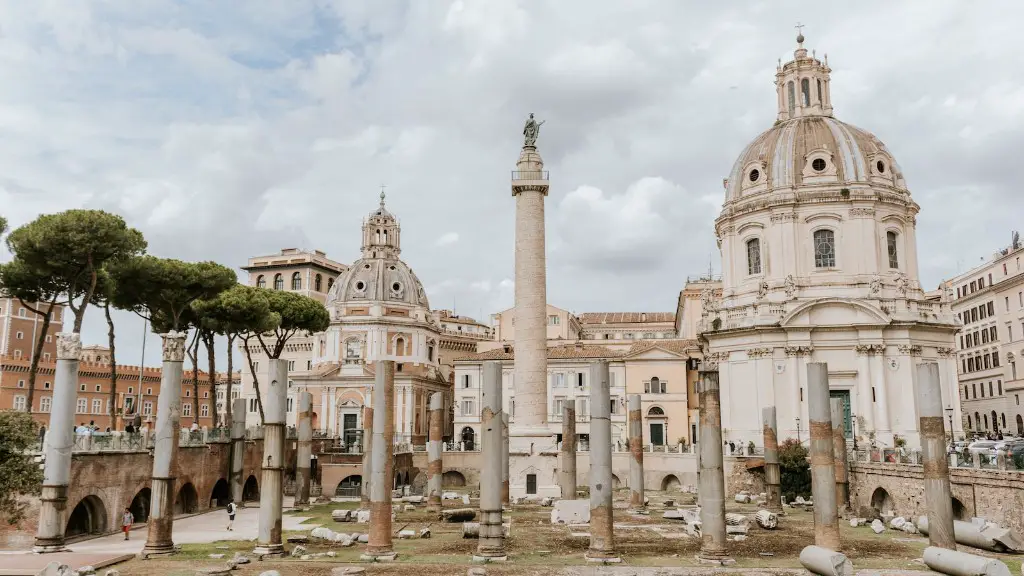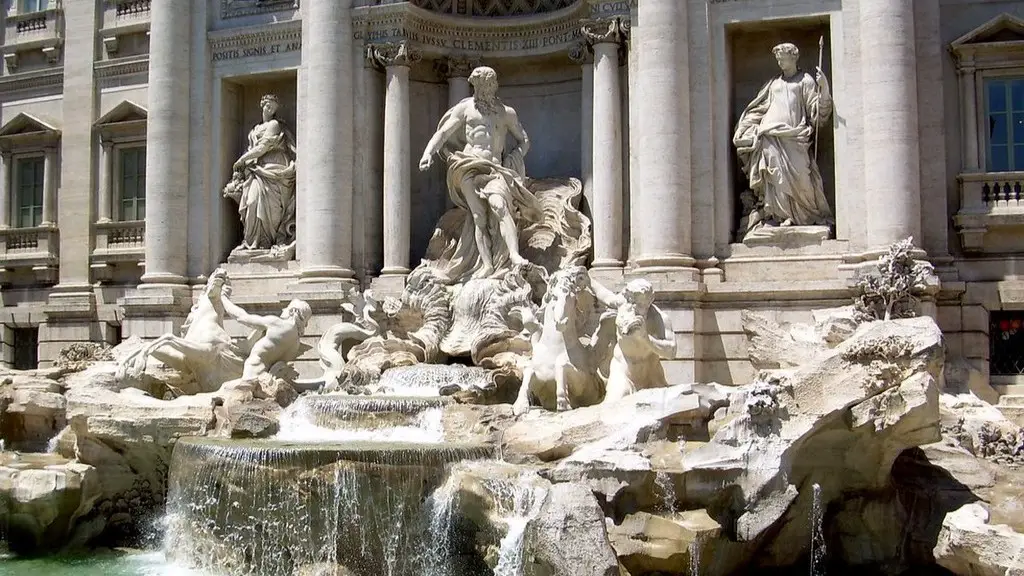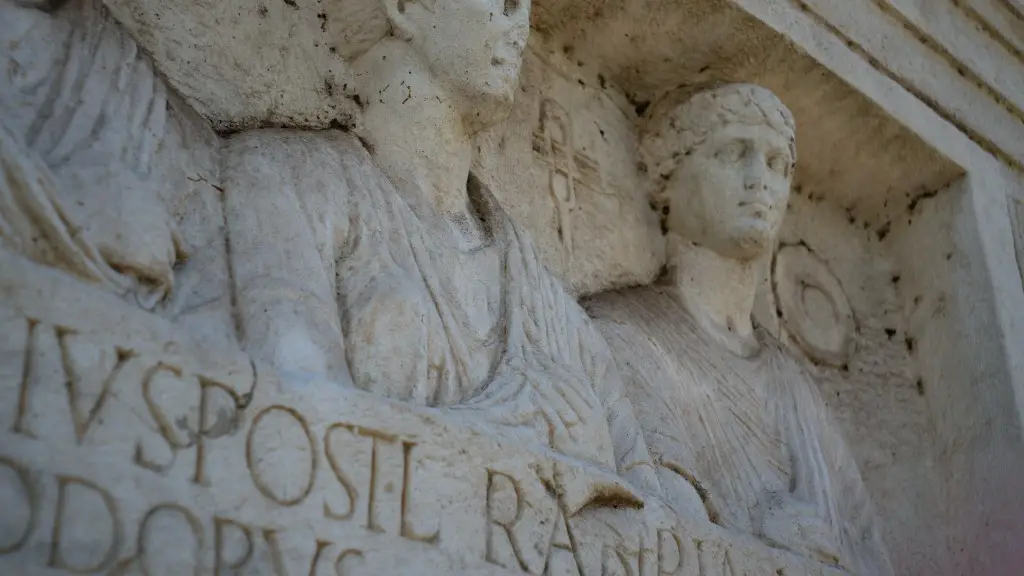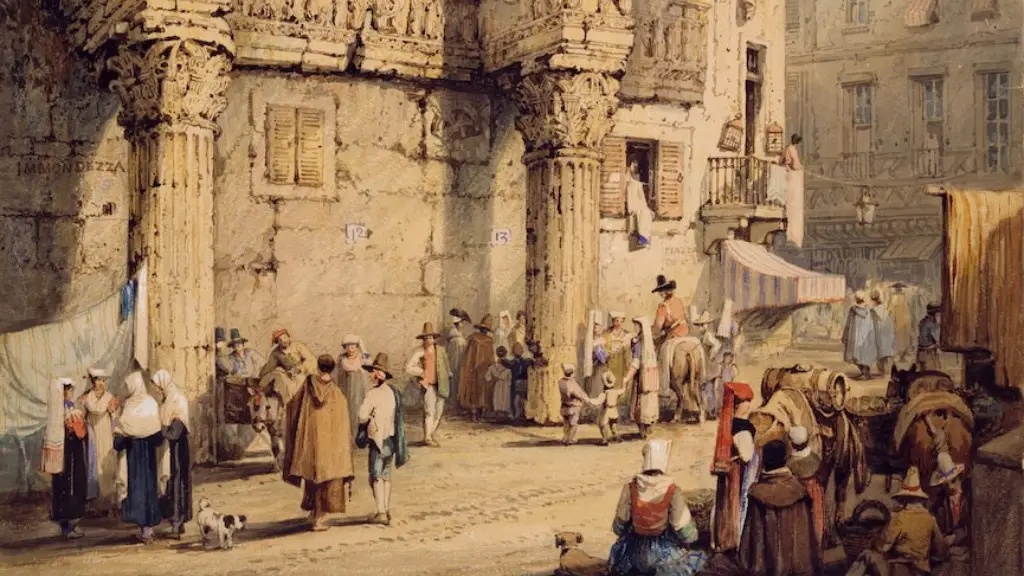The First Punic War erupted in ancient Rome in 264 BCE, due to strained and turbulent relations between Rome and Carthage. Both powers had competing interests in the Mediterranean and sought to maintain their strongholds in the region. For Rome and Carthage, this was a time of contention and struggle, and the conflict marked the beginning of a period of intense maritime warfare.
Conventionally, the conflict is said to have started when Rome declared war on Carthage in retaliation for the attempted capture of the city of Messina, a former ally of Rome. While the exact cause of the war is still up for debate, most historians believe it was due to growing power struggles, as Rome sought to flex its influence in the region. The war was also a part of a larger struggle for control of Sicily, and to secure its power in the Central Mediterranean.
The war itself was an epic contest of naval warfare, with both forces vying for control of the sea. Rome and Carthage both had strong navies, and the conflict resulted in many naval engagements. The war lasted for more than 20 years, ending in 241 BCE with the defeat of Carthage and its imposition of the Treaty of Lutatius. The war resulted in Rome’s occupation of Sicily and the Roman conquest of much of the Mediterranean.
The effects of the war were far-reaching and impactful. It is widely considered to be one of the most influential events in western civilization and the beginning of the Roman Empire. It also ushered in a new era of naval warfare, with Rome playing a central role in the development of naval tactics and strategy. It was during this time that the Romans developed their famous sailing vessels and triremes.
In recent years, the First Punic War has become increasingly popular, with historians and archaeologists seeking to better understand the conflict and its impact on the region. Scholars have argued that the war was a critical event in the development of the Roman state and the expansion of its power. Moreover, the conflict has been credited with helping to shape the political and cultural landscape of the Mediterranean.
The First Punic War is an example of how power dynamics can become tightly entwined, leading to an explosive conflict. It is a fascinating and powerful example of the power of human ambition and the strife that can arise from competing interests. The war’s legacy continues to live on in the modern world, and serves as an important reminder of the consequences of power struggles and the need for collaboration and diplomacy.
Strategies Used During The War
The First Punic War was marked by complex and varied strategies. The Romans employed a combination of maritime and land tactics to achieve their strategic objectives. On the sea, they used triremes and other advanced sailing vessels to harass and blockade enemy ports and disrupt their navigation. On land, they employed siege tactics and cutting off food supplies.
The Romans also made strategic use of their allies in the region. The city of Syracuse, for example, was an ally of Rome and it provided them with valuable logistical and naval support. These strategic alliances further cemented the Roman’s position of power in the Mediterranean and helped ensure their victory.
Carthage, on the other hand, sought to exploit its control of the seas. It used its naval fleets to disrupt Roman supply lines and isolate their forces on land. It also employed effective hit-and-run tactics, employing skilled sailors to ambush and harass Roman fleets. While these were effective at times, in the end, it was not enough to secure Carthaginian victory.
The First Punic War is thus an example of the importance of complex strategies and the need to assess and respond to changing conditions. It is a reminder of the importance of strategic planning and ever-evolving tactics.
Impact on Rome
The victory of Rome in the First Punic War had far-reaching implications. It enabled Rome to secure its power in the region and gain a foothold in the Mediterranean. Through its naval superiority, it was able to expand its maritime trade and commerce and become a major power in the region. This was instrumental in the rise of Rome and its eventual emergence as a superpower.
The immediate effects of the war can be seen in the economy of the Roman Republic. The war generated a surge of wealth, enabling Rome to pay for its infrastructure and military expansion. This economic strength was a major factor in the stability and success of Rome.
The war also had a major impact on Roman society. It created a newfound sense of nationalism and pride, and it changed the political landscape of the Roman state. It also legitimized the rule of the Senate and enabled Rome to expand its influence in the region.
The First Punic War was thus a pivotal event in the history of the Roman empire, and its legacy continues to this day. It enabled Rome to secure its power in the region and serve as a major force in maritime trade and commerce.
Impact on Carthage
The First Punic War had significant consequences for the city of Carthage. Its defeat marked the end of its independence as it was forced to accept the Treaty of Lutatius, which stipulated that it had to pay massive reparations to Rome and give up its hold on Sicily. This had major economic repercussions for the city, as it was left in dire straits due to the financial burden of the war.
The war also weakened the social and political fabric of the city. Its ruling class, the Barcids, were deeply unpopular and this contributed to the city’s demise. The people of Carthage revolted against the ruling class and sought to overthrow them in favor of a more democratic system.
The war also deeply affected Carthage’s relationship with its former allies. The city was seen as weak and unreliable, and it lost the trust of its former allies in the region. This further weakened its position and led to its eventual downfall.
The First Punic War is thus an example of the devastating consequences of power struggles and shifting alliances. It highlighted the importance of international cooperation and the need to never underestimate one’s enemies.
The Legacy of The War
The effects of the First Punic War echoed through the centuries, with the memories and lessons it holds still relevant today. It was a formative conflict for western civilization, setting the stage for the emergence of the Roman Empire. Its legacy also lives on in modern naval warfare and tactics, as many of the tactics employed during the war are still in use today.
The war also serves as an important reminder of the need for cooperation and understanding among nations. In an increasingly globalized world, where power dynamics are complex and unpredictable, international relations must be based on understanding, collaboration and respect.
The First Punic War is an example of how the ambitions of nations can lead to devastating consequences. It serves as an important reminder of the power of the human spirit and the need to work together towards a more peaceful, prosperous future.
Conclusion
The First Punic War is an important marker in the history of the western world and an example of the power of human ambition. Its legacy continues to this day, and its lessons can still be applied to the modern world. It serves as an important reminder of the need for cooperation and understanding among nations, and of the devastating consequences of power struggles and conflict.





